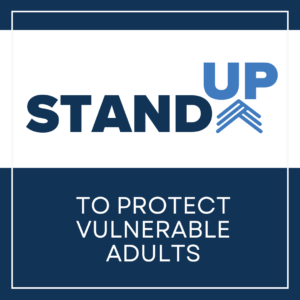As we sat together in the exam room waiting for the nurse to come in, Josie* was coloring a picture quietly. When I asked if she knew why she was in our clinic, she replied “Yes, because my step-dad did this,” pointing to a large bruise on her face. From there, the flood-gates opened and Josie disclosed a several-year history of physical and sexual abuse by her step-father. Furthermore, Josie was suffering from chronic malnutrition to the point that at age 15 she appeared to be only 9 or 10 years old.
Thankfully, earlier that day an adult asked Josie about her bruise while she was at school. Josie felt comfortable enough with that adult to tell the truth, and the adult was able to call CPS on her behalf. Unfortunately, there are many kids like Josie who don’t get a chance to tell their story – or when they do they are not taken seriously.
As a Child Abuse Pediatrician and fellow believer, here are 3 things I wish every congregation knew.
- Abuse is far more common than you think.
Did you know that in 2019, an average of 5 children a day died as the result of child abuse in the U.S.?[1] Sadly, another roughly 650,000 children were victims of non-fatal child abuse that year.[2] These numbers represent cases that were confirmed by CPS and are likely an underestimation of the true number of children who have been victimized. These are harrowing numbers, which also tell us that you and I personally know children who are victims of child abuse, as well as adults who were victimized as children.
When we consider our local churches, it is all too easy to think “not us, not here.” However, when we think this way, the problem of child abuse doesn’t go away – we simply ignore it and leave children vulnerable to their abusers. Abusers do not have a distinct profile and can literally be anyone, anywhere, which is why it is imperative for those who care for children to educate themselves on signs of abuse. Many cities or counties offer mandated reporter trainings to the public, which are a great place to start![3]
Child abuse takes many forms, including physical abuse, sexual abuse, neglect, and emotional abuse. Each form can be fatal, or if not fatal can have a dramatic impact lasting throughout adulthood. While some abuse has obvious outward signs, such as in Josie’s case, there are many more instances where abuse is not visibly detectable. This is one of the reasons why when a child discloses abuse, it is imperative that we take him or her seriously, even if we don’t have all of the details or fully understand what we’re being told.
- Keeping things within the church hurts more than helps
As a church, it is our moral obligation to protect and care for children. One of the ways we can do this is by committing to the proper handling of cases of abuse when they arise. This often means reporting abuse to church leadership as well as to CPS and law enforcement. Although their efforts may overlap, all three have an important and distinct role to play. The local church should not be deceived into thinking it is best-equipped to handle a case of abuse internally. Although there is significant work for the church to do, this should not be to the exclusion of involving other authorities.
The local church can commit to caring for the victim of abuse, and should be there for support during the long process of healing and restoration. The church can also engage in discipline of the abuser if they are a member of the church, with attention to ensuring that the needs of the abuser are not interfering with the needs of the child.
CPS is responsible for helping to ensure the safety of families within a community. Although many people think that involving CPS means that the children will be taken from their parents, a removal of parental rights is actually a relatively rare outcome. Instead, CPS’s mission is to provide families with the tools they need to live together safely, as well as to help protect other children who may interact with that family. This is certainly a task that a church can help with; however, attempting to take on this work in a vacuum often leaves both the initial victim and other children vulnerable.
Law enforcement is responsible for enforcing the law and pursing legal action within the justice system. In cases of child abuse, a crime has been committed which needs to be handled by the appropriate authorities who we have tasked with helping to protect our community. Law enforcement will make decisions about how to appropriately charge the abuser and often work in conjunction with prosecutors to take a child’s case through the justice system.
- Abuse can be prevented.
While abuse happens everywhere, there is a lot that can be done within local church congregations to help prevent it. One key way to do this is to develop and commit to church policies and a church culture that promotes the safety of children. Organizations such as ECAP can provide guidance to local churches on how to do this. Although there are some general best practices that any church can follow, the size, composition and physical location of churches may require nuance and creativity in how child safety is promoted.
When your church creates a Child Protection Policy, it is important for church members to learn why these have been created. As the church body is able to understand the goals and consequences of each policy, this allows them to more fully engage while at church, but also to commit to these same principles in other places where they interact with kids such as schools, daycares, and even within their homes/friend circles. As a church member who has been a part of implementing these practices, I realize they can seem difficult to adhere to, or like they are “overkill,” but I can assure you – for the children in your church that they protect, they are life-altering.
A few other important notes:
In the event of an emergency, such as life-threatening abuse or neglect, or an acute sexual assault, call 911 and/or go to the nearest Emergency Department for help to ensure timely medical care and the safety of the child. If you are in a situation that is urgent but not emergent, call your local CPS hotline and/or non-emergency police number. You can also contact the child’s pediatrician who can provide guidance on appropriate next steps.
If a child has been a victim of physical abuse, neglect, or sexual abuse, they likely need a medical exam by a trained professional. This can often be arranged by CPS, law enforcement, your local emergency department, or the child’s pediatrician.
* Name and certain identifying details have been altered to protect the identity of the patient.
[1] https://www.acf.hhs.gov/cb/report/child-maltreatment-2019
[2] https://www.acf.hhs.gov/cb/report/child-maltreatment-2019
[3] https://mandatedreporter.com/training





